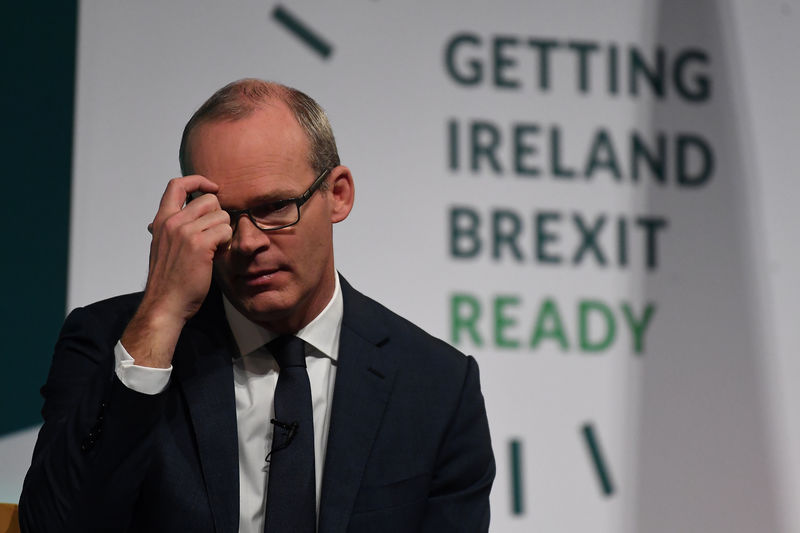DUBLIN (Reuters) - Neither Ireland nor the European Union would ever sign up to a backstop agreement to keep the Irish border open after Brexit that could be ended unilaterally by Britain, Ireland's foreign minister said on Monday.
With just five months until Britain is due to exit the EU, Prime Minister Theresa May has yet to clinch a divorce deal, with negotiators stuck on the terms of the so-called "backstop" insurance arrangement to keep open the border between British-ruled Northern Ireland and EU member state Ireland.
Cautious optimism that a deal between the EU and London may be in the offing in coming weeks has been kept in check by the fact that it remains far from clear whether any such agreement could go through the British parliament.
The Daily Telegraph newspaper reported that May's Brexit Minister Dominic Raab had privately demanded the right to pull Britain out of the "backstop" arrangement for the Irish border after three months.
"The Irish position remains consistent and v (ery) clear that a 'time-limited backstop' or a backstop that could be ended by UK unilaterally would never be agreed to by Ireland or the European Union," Irish Foreign Minister Simon Coveney said on Twitter.
"These ideas are not backstops at all + don't deliver on previous UK commitments," he added, following the media report that Raab made the pitch to Coveney in a private meeting in London last Tuesday.
The message quickly won endorsement from the EU's deputy Brexit negotiator, Sabine Weyand, who reacted to Coveney's comments by saying: "Still necessary to repeat this, it seems."
After a meeting in Dublin on Friday with Britain's Cabinet Office Minister David Lidington, May's de facto deputy, both Coveney and Lidington said the two sides were "very close" to resolving differences on the border issue.
The sides have moved closer to agreeing on customs arrangements under the emergency Irish border fix, sources in Brussels have said, which would keep all of the United Kingdom in a customs arrangement with the EU, as London has sought. It would also keep Northern Ireland in the customs union of the EU, as long insisted by the bloc.
Lidington also said the British government would stand by the written commitments it had already made on the backstop, which include an agreement that it would apply unless and until a better solution is found.

The EU has suggested that the tweaked "two-tier" backstop covering all of the UK could give mainland Britain some scope to set its own trade rules while keeping Northern Ireland aligned with the EU.